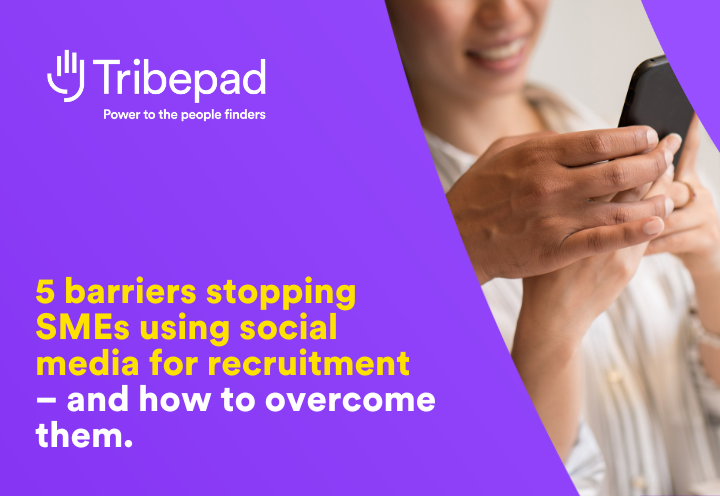For years now, healthcare organisations have battled with talent-related challenges that hurt care quality (as well as profit margins).
Of course, that’s not only recruitment’s problem. It’s also a wider issue around how we engage, retain, train, motivate, promote and reward healthcare professionals.
But recruiters play an enormous role. Great healthcare starts with your team, finding the brilliant people who’ll deliver the care your patients and customers rely on. Ultimately, better healthcare recruitment powers better care: that’s what it’s all about.
But hiring brilliant people is much easier said than done. Let’s dive into the six biggest challenges healthcare recruiters face today.
1 – Candidate attraction
Staff shortages have always been a major problem for healthcare. And the last few years have only made life harder.
- The Health Foundation says that over a million more health and care staff are needed to meet demand, improve services, and recover from the pandemic by 2030.
- Skills for Care report that care worker vacancy rates in 2021/22 were twice as high as the national average, at 11%.
- The CIPD’s Labour Market Outlook Autumn 2022 finds that 55% of recruiting employers in the UK healthcare sector report hard-to-fill vacancies – the highest proportion of any sector.
- Private health and social care providers are likely to see a further challenge in both retention and attraction due to 5.5% pay increases within the NHS announced recently, with many unable to find the financial resource to match it.
And there’s no end in sight.
The aging population is getting older, increasing demand. And healthcare workforce is getting older too, coming ever-closer to retirement. Plus long COVID is stubbornly sticking around, adding long-term pressure on healthcare professionals while also hurting their health more than anyone.
Faced with massive talent shortages and huge competition, healthcare recruiters must focus on developing proactive candidate attraction strategies. If not, worsening care quality and patient outcomes are on the horizon.
Get some practical ideas for better candidate attraction in healthcare.
2 – Retention
If attracting healthcare workers is one challenge, keeping them is another. Health and social care turnover is notoriously high.
Skills for Care report that staff turnover rates in adult social care 2021/22 was 29%, leaping to 52.6% for the youngest staff. The turnover rate among registered nurses was 44%.
Compare those to the UK average across all industries, which hovers around 15%.
That’s a problem that needs fixing. Even if you quadrupled your successful fill rate, there’s no point pouring water into a leaky bucket. Focussing on recruitment without focussing on retention is a waste of time and money.
Plugging the leak must be an urgent priority. Everyone involved with people processes in healthcare must be asking:
- Are we bringing the right people into the business?
- Are we setting them up to succeed from day one?
- Are we creating cultures where they want to stay?
- Are we empowering them to feel fulfilled and motivated?
- Are we providing training to support internal mobility?
- Are we offering enough career progression opportunity?
- Are we safeguarding well-being, especially in the aftermath of a crisis?
Get some practical ideas to solve healthcare’s retention challenge.
3 – Rising costs
Skills shortages and turnover are expensive problems. One 2022 study says that nurse turnover alone costs the average hospital millions each year. And too-long time-to-hire loses great people, forcing you back to job boards or towards stop-gap agencies.
And that’s before you consider soaring inflation, piling pressure onto healthcare profit margins. McKinsey call inflation a “gathering storm” that could “put nearly half of profit pools at risk”.
In 2023, healthcare recruiters must focus on building a more efficient recruitment process, to make every moment (and penny) count. The age-old ‘do more with less’ dilemma has never been so important.
Get some practical ideas to cut healthcare recruitment costs.
4 – Hiring manager experience
Healthcare recruiters are under heaps of pressure to hire faster, but hiring managers can be a major bottleneck. According to Jobvite:
- 56% of recruiters say their biggest bottleneck is hiring managers moving candidates through hiring stages too slowly.
- 43% of recruiters say their biggest bottleneck is hiring managers reviewing CVs too slowly.
- 25% of recruiters say they’ve witnessed or experienced a candidate interview that took four or more hours.
That’s an ever bigger deal right now, as frontline healthcare workers battle increasing pressure, workload, burnout and fatigue. It’s the perfect storm: a fast, effective recruitment process is more important than ever, but hiring managers have almost zero bandwidth.
In 2023, healthcare recruitment teams must focus on improving collaboration, to speed up recruitment and improve the candidate experience too.
Poor manager collaboration was a major challenge for Well Pharmacy, who had their complex hierarchy of field, area, and regional managers recruiting for more than 760 pharmacies across the UK, aided by only five recruiters.
Find out how Well Pharmacy improved collaboration and facilitated seamless manager self-service with Tribepad.
Empowering a better experience for your time-strapped managers is better for everyone. Not least, the people you care for.
Get some practical ideas to improve healthcare manager collaboration.
5 – Black holes
Poor data visibility is a big issue in almost every industry. But it’s especially bad for decentralised healthcare organisations, with hundreds of managers and complex recruitment processes.
Lots of healthcare recruiters we speak to say they can’t easily track even the basic stuff. Like:
- How many roles are open, where?
- How long have those roles been open?
- Why have those roles stayed open?
- How many candidates have applied?
- Which sources do candidates come from?
- How many candidates are we interviewing?
- Which candidates are we onboarding?
- Have candidates been sent the right contracts?
- Have we verified candidates’ compliance documentation?
- Who’s accountable for what, when?
- Which hiring managers are doing what, when?
- How are recruiters or teams performing?
- Where do hiring managers need extra support?
The problem is, poor visibility translates into poor control. The candidate experience is usually shoddy and inconsistent, plus your recruitment team are practically working nights just to handle basic admin. And your exposure to risk goes through the roof.
Plus, if you can’t easily get the answers to questions like these you can’t see where you could improve. You recognise the symptoms – rising recruitment costs, threatened care ratios, even enforcement action – but black holes mean you can’t diagnose or cure the problem.
Healthcare recruiters need to harness data to their advantage, to move the needle on their most important outcomes.
Get some practical tips to improve healthcare recruitment reporting.
6 – ED&I progress
Many healthcare organisations are doing a fantastic job on improving workforce diversity. In 2021 for example, the NHS workforce was the most diverse in its history. Despite positive progress through, there’s still much work needed to achieve equal representation.
Recent research from the CIPD showed that only 47% of UK employers have an ED&I strategy, for example.
Healthcare recruiters can’t rest on their laurels. And making progress is a major opportunity, when so many other businesses aren’t.
ED&I is a major priority for jobseekers: your diversity creds are an important part of your employer brand. For example, Glassdoor find that 67% of jobseekers look at workforce diversity when evaluating companies and job offers.
Plus, a fair and inclusive recruitment process opens talent pools you might otherwise be excluding.
Healthcare recruiters must make 2023 the year of real progress on ED&I.
Get practical tips to improve ED&I in healthcare recruitment.
Take back control over healthcare recruitment
The burden of addressing healthcare’s workforce challenges doesn’t only rest on recruitment teams’ shoulders. You’re doing your best and can only work with what you’ve got.
Culture, pay, purpose, colleagues, management style, workloads… these things all impact engagement, retention and feed back into recruitment.
But healthcare recruiters must take the reins over what you can control. Namely, the six major challenges we’ve talked about here. Head on over to this article, for some practical suggestions on how to do that.
—
Tribepad is the trusted tech ally to smart(er) recruiters everywhere. Our talent acquisition software is a springboard for faster, fairer, better recruitment for everyone.
Trusted by organisations like Bupa, Signature, NHS Professionals, Turning Point, and HCRG Care Group, 25-million people in 16 languages use our talent platform.




